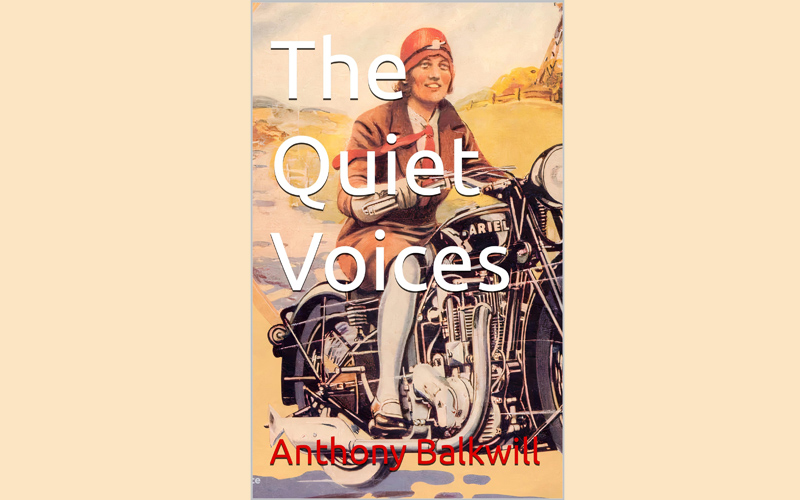“Not much really happens in the story,” says author Tony Balkwill in the introduction to his latest novel The Quiet Voices. And yet it does.
The dual narrative juxtaposes a troubled teen suffering from obsessive compulsive disorder and an elderly woman sliding inexorably into full-blown dementia. They both hear ‘voices’: Cat’s include telling him to count in prime numbers, in palindromic primes, recite musical chords, step in a set fashion on pathways and – significantly – obsessively check whether the front door is locked. Joan’s voices are from the past as her grip on the present becomes increasingly tenuous. The voices of her long-dead husband and beloved dog which floats – quite literally – in and out of her story.
The novel opens with Cat returning to the village near Hull which he left two years previously after his parents were killed in a car crash. The intervening years have been spent living in a tent in Cyprus outside his grandparents’ house. Back home he is still living in a tent – which he has to zip open and close in a particular fashion – as since his family tragedy he has been unable to step inside a house.
He first meets Joan as she wanders in her nightie and wellies along the riverbank, where Cat has set up his tent, looking for her dog which died years before. As their relationship develops Cat realises he can step into Joan’s house without fear or obsessively counting and Joan is – sometimes – aware that Cat is helping her live a relatively normal life and keeping her from being put into a dreaded nursing home.
‘Never go back’ is a theme which echoes through the novel. Yet in Joan’s narrative it leads to a poignant account of a happy, though childless marriage. Balkwill vividly describes Hull of the 1920s and 30s. Joan’s hopes for the future as the couple move to a newly built house, planning their garden and hoping for the children that never come, are especially moving. Balkwill’s evocative, sensitive handling of an elderly, lonely woman living in the past as the present is rapidly slipping from her grasp is a remarkable achievement.
For Cat ‘going back’ becomes a far more positive experience, although it doesn’t seem so at first. His OCD predates his parents’ death. An avid reader as a young boy, he turns away from books as his condition develops. His most-treasured book is hidden away and he turns to numbers. The OCD becomes worse after his parents’ deaths despite therapy, and his time in Cyprus is of limited help, kind though his bewildered grandparents are. On his return, he revisits old places that were once important, but of course they have changed. It is through his relationship with Joan and the discovery of her husband’s old motorbike which then leads to an unexpected meeting that a slow transformation takes place.
It is not just the characters that Balkwill describes which make The Quiet Voices such a highly recommended novel, but also the sense of place. The contrast between the oppressive, leaden-grey skies and sluggish river of the East Yorkshire village and the big blue sea and skies of sun-blasted Cyprus is beautifully drawn.
And for this reader at least, I’m delighted drizzly Hull wins out.







Click here to change your cookie preferences